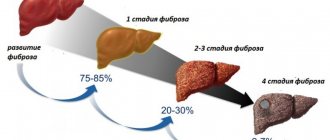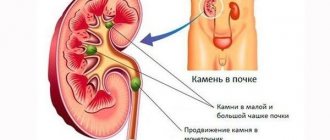Diseases of the liver and biliary tract
Acid in the mouth often bothers pregnant women
Among the reasons that cause a sour taste in the mouth, diseases of the liver and biliary tract come first. In a healthy person, with the normal functioning of all internal organs, bile enters the duodenum.
In diseases of the liver and biliary tract (cholecystitis, dyskinesia, etc.), increased bile formation occurs and a violation of the proper disposal of bile occurs.
As a result, bile stagnates in the bile ducts, accumulates there, and then is thrown into the stomach, esophagus, and from there into the oral cavity, which is manifested by the appearance in the mouth of an unpleasant sour taste with an admixture of bitterness in the mouth. If the cause of acid in the mouth is a violation of the outflow of bile, then in this situation this symptom can be eliminated with the help of diet.
It is enough to exclude from the diet foods that provoke excess bile production, in particular, fatty, fried, spicy, salty, pickled foods. Naturally, this will not help in healing the pathology, because acid in the mouth is just a symptom, so you cannot do without consulting a doctor.
H-bomb
The taste of hydrogen sulfide, which is popularly called “rotten,” is perhaps the most unpleasant of all existing sores. Its cause is the same notorious gastritis, albeit with low acidity. As a rule, this is a congenital pathology: for some reason, a person produces insufficient gastric juice.
It is not enough for everything eaten to be digested in the required time frame. Therefore, food, instead of dissolving and being utilized, accumulates and begins to rot. The echoes of this process are felt by your man in the form of a nasty taste in his mouth. To overcome the sore throat, you will have to take special medications that should be prescribed by a doctor.
For example, these are hydrochloric acid and gastric juice (synthetic drugs that can replace natural fluids and help digest food), as well as plantain juice (stimulates the production of its own acid). As for the diet that is mandatory for all gastritis sufferers, in this case your man will only be happy to follow it.
The main thing is to make sure that your beloved does not eat too much, otherwise everything will return to normal: the food will begin to rot, and the taste of hydrogen sulfide will again take over the mouth. For gastritis with low acidity, you should eat often, but little by little. Also, make sure that your lover has dinner no later than 6 pm, or at least 2 hours before bedtime.
Diseases of the gastrointestinal tract
A sour taste in the mouth may indicate diseases of the gastrointestinal tract. This could be an ulcer, gastritis and a number of other pathologies. At the same time, acid in the mouth is not an isolated symptom; it can appear against the background of heaviness and pain in the abdomen, and may be accompanied by nausea, belching, weakness, and depression.
If an unpleasant taste in the mouth is accompanied by heartburn, then we can most likely talk about gastritis with high acidity.
Useful article? Share the link on VKontakte
In this case, you can eliminate the unpleasant taste in the mouth with the help of a special diet, which involves excluding fried, fatty, spicy, pickled and smoked foods from the diet. Meals should be fractional, you should eat in small portions, but often. Buckwheat porridge, bran bread, baked eggplants, fresh spinach, seaweed, bananas, green tea, and jelly should be included in your daily diet.
Oral diseases
Dental problems can cause bad taste
The cause of a sour taste in the mouth can be poor oral hygiene and regular caries. The only way to eliminate odor and taste is to follow good oral hygiene (brush your teeth at least twice a day) and fill carious teeth.
Other oral diseases, in particular gingivitis and periodontitis, can also cause a sour taste in the mouth. Other symptoms of these pathologies are redness of the gums, bleeding, pain, and loosening of teeth. Untreated gingivitis and periodontitis can lead to gum abscess and tooth loss.
Often, metals are used to make the latter, which oxidize when in contact with saliva or certain foods, which is why a sour taste appears in the mouth. In the first case, it is impossible to get rid of this symptom; the only way out is to replace the crowns.
In addition, a sour taste in the mouth often appears when wearing metal crowns or bridges.
If an unpleasant taste appears while eating, then to eliminate it you can rinse your mouth with special solutions designed to restore the pH of the oral cavity.
Salty taste in the mouth - lack of moisture
Very often, a salty taste appears due to poor dental and oral hygiene. Like other symptoms, it indicates the appearance of diseases in the body. As a rule, the sign indicates the following pathologies:
- salivary gland infections;
- kidney dysfunction;
- sinusitis and sinusitis;
- drugs for bacterial infections;
- constant dehydration of the body.
A lack of fluid in the body is manifested by a constant “salty feeling in the mouth,” and the greater the dehydration, the higher the concentration of salt in saliva. This sensation can occur due to an abundance of too salty food and with disease of the salivary glands, when salt clogs the salivary ducts. As a result, saliva begins to accumulate and the concentration of sodium chloride increases significantly. Under such circumstances, it is necessary to increase fluid intake to 2.5 liters per day.
Other causes of acid in the mouth
Acidity in the mouth accompanied by dryness may indicate metabolic disorders in the body. In this case, you need to contact an endocrinologist. Such unpleasant sensations may appear due to a violation of the drinking regime. Insufficient consumption of drinking water can cause slagging in the body and oxidation of body fluids.
Sour taste brings a lot of inconvenience
An acidic taste in the mouth may indicate that there are problems with the heart, this should be especially alarming if there is numbness on the left side of the body. Very often, pregnant women complain about a sour taste in the mouth.
This is due to the fact that during pregnancy there is a change in hormonal levels, which entails a similar phenomenon. In addition, the fetus, increasing in size, puts pressure on the stomach, causing the release of its contents into the esophagus.
To eliminate this symptom, pregnant women are recommended to adhere to fractional meals, when meals are taken 7-8 times a day in small portions. It is also recommended to exclude heavy, difficult-to-digest foods from the diet, giving preference to fruits, vegetables, and cereals.
If an acidic taste in the mouth is observed immediately after eating, this may be due to the characteristics of the diet.
Including a large amount of acidic fruits and vegetables in the diet helps create a favorable environment in the intestines for the proliferation of a certain type of microorganisms, which cause these unpleasant sensations. It is necessary to limit the consumption of such products by enriching your diet with cereals, sweet fruits, dairy and meat products.
As you can see, there are many reasons for the appearance of a sour taste in the mouth. In any case, you should consult a doctor; self-medication is not acceptable, since acid in the mouth can be a symptom of a serious illness.
The video will tell you what the taste in your mouth means:
Everyone has at least once felt a sour taste in their mouth. It can occur for various reasons, such as eating sour or unusual foods. However, if you are sure that food has nothing to do with it, you should think about whether everything is okay with your health?
Such a taste in the mouth is most often one of the accompanying symptoms of any pathology, which only a specialist doctor can tell you in more detail. However, you can try to understand the causes of this problem.
Diagnostics
Finding out what causes a taste disorder is not easy. The doctor carefully examines the mucous membranes of the tongue and determines whether everything is in order with the sensitivity of the organ.
The patient must undergo a taste test on different parts of the tongue. A sick person is alternately given foods with intense flavors to try. Next, the medical specialist drips a special solution onto each part of the patient’s tongue, and the person tells how he feels.
Based on the results of the study, the doctor makes a diagnosis and determines how severe and advanced the disease is. If a specialist doubts the diagnosis, he can prescribe additional laboratory and instrumental tests to the patient.
The choice of therapy is determined by what disease is causing the taste disorder:
- If you have nervous disorders, you should definitely go to a neurologist. The doctor will select the optimal medications, prescribe massage, magnetic therapy, water treatments and other activities that restore the nervous system;
- In case of brain diseases, you should immediately consult a neurosurgeon. The doctor will carefully examine the patient’s brain and prescribe appropriate treatment. Brain pathologies are dangerous and unpredictable, so you should not postpone a visit to a medical specialist;
- If you have an infection in your mouth, you should go to the dentist. The doctor will eliminate caries, pull out rotten teeth, and prescribe the patient to rinse the mouth with antiseptic solutions;
- If you have a respiratory infection, you should consult an otolaryngologist. The doctor will determine the intensity of the inflammatory reaction in the nasopharynx, prescribe antiviral or antibacterial medications, as well as drugs to relieve symptoms of acute respiratory infections;
- for candidiasis, the oral cavity should be treated with antifungal solutions;
- for diseases of the digestive tract, consultation with a gastroenterologist is necessary;
- If there is a deficiency of certain substances in the body, you need to contact an endocrinologist. It is possible that a lack of zinc, iodine or other trace elements is associated with a malfunction of the endocrine glands.
- If taste disturbance is associated with taking certain medications, then you need to ask your doctor to replace the prescribed medications with more harmless ones.
If the doctor determines that the cause of excessive mucous discharge is a cold, sinusitis, viral infections, or allergies, vasoconstrictors are prescribed. On the 3-5th day of using the appropriate drops or spray, you usually feel a significant improvement in nasal breathing. Over time, the patient will notice that his sense of smell is gradually restored.
A runny nose caused by a virus infection occurs in most cases. It responds well to symptomatic treatment. The patient is advised to drink plenty of warm fluids, administer saline and antiviral agents.
If the cause of the malaise is a bacterial infection, then antibiotics will be required. Allergic rhinitis can be treated with antihistamines.
All of the methods described above eliminate the cause of the disease. But how can you restore your sense of smell and taste if your nose is stuffy? It is necessary to clear the respiratory system of accumulated thickened mucus.
For this, a ready-made preparation or a simple saline solution, which is easy to make at home, is suitable. Take 1 tsp. salt (preferably sea salt), stir it in warm boiled water (1 glass). You will also need a syringe. The resulting filtered solution is taken there and both nostrils are washed alternately over the sink so that the water enters one nostril and flows out of the other. It is advisable to carry out the procedure 2-3 times a day.
Detection of most of the described signs requires contacting a medical facility. To exclude the possible development of dangerous illnesses, the patient will need to visit a general practitioner, an infectious disease specialist, a gastroenterologist and a number of highly specialized doctors.
Diagnosis and treatment are made after interviewing and examining the patient and obtaining the results of additional studies. Among the latest:
- general and biochemical blood and urine tests;
- Ultrasound of the abdominal cavity;
- MRI;
- radiography;
- PCR diagnostics.
Having found out why the discomfort appeared, the doctor develops a treatment regimen for the disease. Relief of ailments that bother the patient is carried out by using anti-inflammatory drugs, antibiotics, and hormonal drugs. Treatment is carried out taking into account the patient’s age, his condition, and the presence of a history of chronic ailments. Recovery time varies depending on the form and type of pathology.
A favorable outcome of the identified disease is possible only if you consult a doctor early, do not self-medicate, and follow all the recommendations of the clinic employee.
Causes of the problem
A sour taste in the mouth is associated with diseases of the gastrointestinal tract.
An unpleasant taste in the mouth can occur for several reasons:
- The presence of a large, excessive volume of gastric juice with an increased level of acidity
- Dysfunctions of the digestive system
- Gum or periodontal problems, the presence of caries and other pathologies in the mouth
- In addition, a sour taste can be a side effect of taking certain potent medications.
Often, when a similar problem occurs, it is recommended to analyze the functioning of the pancreas. If a sour taste is accompanied by heartburn, then perhaps the cause is the occurrence of reflux esophagitis - a disease characterized by the removal (throwing) of stomach contents back into the esophagus.
If you feel a dry mouth, a sour taste can be associated with an imbalance in electrolyte metabolism. Most likely, the body simply lacks fluid.
Most of the problems characterized by the manifestation of a sour taste in the mouth are associated with diseases of the gastrointestinal tract. To determine a more accurate diagnosis, it is recommended to focus on what exactly the sour taste is, whether there is a relationship between the taste and the manifestations of stomach pain, colic, nausea, and at what time of day they usually appear:
- A sweet and sour taste may indicate problems in the body such as pathologies of the liver, stomach, caries, gingivitis, intoxication with various chemicals, as well as the consequences of stress or depression.
- A bitter-sour taste is evidence of problems such as: a consequence of overeating fatty foods (which in turn damages the liver), excessive alcohol consumption or heavy smoking.
- Sourish-salty taste: dehydration, abuse of alcohol, energy drinks, strong coffee or tea, and excessive overeating.
- Metallic taste: as a manifestation of the initial stage of diabetes, evidence of intoxication of the body, hormonal imbalances, or the opening of a bleeding ulcer.
If, along with an unpleasant sour taste in the mouth, nausea also appears, this most likely indicates problems associated with the digestive system. They may be:
- Gastritis, characterized by high acidity
- Stomach or duodenal ulcer
- Gastroduodenitis
- Of course, to make the correct diagnosis and select the correct treatment, you need to seek help from a specialist doctor (gastroenterologist).
Treatment
There are many factors that provoke the presence of iron taste in the mouth. Among them, experts identify the most important ones, which are accompanied by additional symptoms.
Why does a metallic taste appear in the mouth?
- A metallic taste in the mouth provokes the use of dental structures made from low-quality types of metal.
Hormonal imbalance. Sudden changes in mood, unstable psycho-emotional state, general malaise and fatigue. - Diet. Accompanied by a deficiency of vitamins, micro and macroelements, which negatively affects the functioning of the digestive system.
- Medicines. When undergoing drug therapy, the load on the liver, pancreatis, and stomach cavity increases, while changing the intestinal microflora. This condition is often accompanied by a metallic taste in the mouth.
- Intoxication. Formed by excessive exposure of systemic organs to heavy metals. As a result, the affected person feels a metallic taste in the oral cavity.
- Dental orthodontic structures. A metallic taste in the mouth provokes the use of dental structures made from low-quality metals. The designs contribute to changing the speed and mechanism of the galvanization process, which promotes the release of ionic particles from the iron.
- Poor quality water. Unfiltered water used for drinking and cooking contains large amounts of iron-containing sediments, leading to the development of an oxidative process in the oral cavity and the appearance of an iron taste in the oral cavity.
- Anemia. This condition is accompanied by functional changes in all body systems, which cause a deficiency of iron and other macro and microelements in the body. Often, a metallic taste can appear against the background of cracks on the tongue and in the corners of the mouth.
- Diabetes. The appearance of a metallic sensation in the mouth provokes the penetration of acetone bodies into the blood, which are formed during the breakdown of fats in the body.
- Gastrointestinal pathologies. The organs of the gastrointestinal tract are directly connected to the oral cavity. Therefore, most pathologies are accompanied by changes in the taste buds in the mouth. The manifestation of an iron taste is one of the main signs of many gastrointestinal pathologies
- Reduced concentration of stomach acid. Accompanied by belching, attacks of nausea, stool dysfunction, and a white coating on the surface of the tongue.
- Dental diseases. Damage to the mucous membrane of the soft tissues of the periodontium leads to destruction of the integrity of the capillaries. As a result, blood enters the mouth, which gives saliva its glandular taste.
- Pathologies of the organs of the hepatobiliary system. The taste of iron in the mouth is a characteristic sign of hepatitis, cirrhosis of the liver and its focal lesions. These pathologies contribute to the development of organ dysfunction.
- Diseases of the biliary tract: cholecystitis, dyskinesia, cholangitis. At the initial stage of development of the pathology, the taste of metal in the mouth is felt strongly, and in the acute form of these pathologies, its intensity decreases significantly.
- Neurological. Most often, this symptom accompanies Alzheimer's disease and multiple sclerosis. The papillae on the surface of the tongue are associated with the functioning of the brain. Neurological disorders lead to dysfunction of the taste receptors in the mouth, which leads to the appearance of a metallic taste in the mouth.
- ENT pathology. The taste of metal in the mouth is a characteristic sign of inflammation of the mucous membrane of the larynx, paranasal sinuses, or external otitis of fungal etiology.
- Hypovitaminosis. A deficiency of vitamins and minerals in the body leads to dysfunction of many systems and internal organs, which in turn provokes the appearance of a metallic taste in the mouth.
Important! The appearance of an iron taste in the oral cavity does not always indicate the development of any pathological processes in the body. Its nature can only be determined by examination results.
The etiology of the sensation of the taste of metal in the mouth in children is the same as in adults. This sign may indicate dysfunction of various organs and systems of the body.
But such an unpleasant steely taste may appear in a child as a result of:
- Systematic consumption of mineral water.
- Eating food from aluminum or cast iron cookware.
- Excessive physical activity.
- Carrying out antibacterial or hormonal drug therapy.
- Beginning of puberty.
Important! You should not try to remove the metallic taste from your child on your own. Timely consultation with a doctor will help avoid the development of serious diseases.
Often during pregnancy, women may experience a metallic taste in their mouth.
This may be due to:
- A metallic taste during pregnancy may be accompanied by nausea in the morning or in the presence of irritants in the form of certain foods.
Exacerbations of chronic pathologies. - Iron deficiency anemia.
- Development of vitamin deficiency.
- Changes in taste buds due to hormonal changes.
A metallic taste during pregnancy may be accompanied by nausea in the morning or in the presence of irritants in the form of certain foods.
It is also possible to enlarge the mammary glands and increase their sensitivity.
These signs are normal during the first and second trimester. If they appear in the third trimester, perhaps they signal the development of pathological processes in the body.
Therefore, during this period it is necessary to systematically undergo consultative examinations with a gynecologist.
Physiological changes and hormonal changes during menopause and menstruation affect the structure of the oral mucosa and internal organs, and also cause the development of anemia. Against the background of these processes, a metallic taste often appears in the mouth.
Men may often experience a metallic taste in their mouth after a run.
Men may often experience a metallic taste in their mouth after a run.
One of the main reasons for the manifestation of this symptom is bleeding of the capillaries.
They can be damaged in two cases:
- During intense running, physical stress on the body increases, which causes partial injury to the capillaries of the lungs and upper respiratory tract.
- Sudden or prolonged exercise stimulates the intensity of blood flow. As a result, the pressure on the walls of the capillaries increases, which leads to a violation of their integrity. Most often, when running, small capillaries of the soft tissues of the periodontium are damaged.
Often, a metallic taste in the mouth is one of the symptoms of numerous pathologies.
| Symptoms | What are they talking about |
| Nausea | Nausea usually occurs with the development of pathologies of the digestive organs and bile ducts. Nausea and bitterness may indicate poisoning or an overdose of certain potent medications. |
| Dizziness | Signals about dysfunction of the central nervous system, disturbances in the functionality of blood vessels. It is a characteristic sign of intoxication of the body with heavy metals and complex chemical compounds. |
| Dry mouth | It appears with dehydration, diabetes of any type; this condition may be accompanied by the presence of acetone in the urine. |
| Cough | Pathologies of the respiratory and ENT organs, pathologies of the gastrointestinal tract and the development of an allergic reaction. |
| Taste after eating | It occurs when you systematically consume low-quality water, as well as when using aluminum and cast iron cookware when cooking. |
| Metallic taste on the tip of the tongue, on the lips, on the teeth, in the throat | Appears when using low-quality dental structures, during severe physical exertion, intestinal pathologies and diseases in the oral cavity. |
| Sour-metallic taste | Indicates the development of anemia, hypovitaminosis, and diseases of the digestive system, especially the stomach, in the body. |
Important! The sensation of metal in the mouth occurs against the background of many pathologies. To get rid of it, the causative disease should be treated.
Diagnostics
One of the main reasons for the appearance of a metallic taste in the mouth is dental pathologies, in which the integrity of the mucous membranes of the mouth is compromised. Therefore, if this symptom appears, you should first visit the dentist.
In the absence of dental diseases, differential diagnosis is carried out.
To do this, the therapist prescribes an examination of narrow specialists such as:
- In the absence of dental diseases, differential diagnosis is carried out
by an otolaryngologist. - Oncologist.
- Neuropathologist.
- Gastroenterologist.
- Endocrinologist.
- Hematologist.
- Pulmonologist.
The standard procedure for diagnosing the cause of a metallic taste in the mouth includes:
- Compiling an anamnesis.
- Conducting a physical examination.
- General clinical tests.
- Biochemical examination of urine and blood.
- Coprogram.
- Biopsy.
- Hardware examination: ultrasound, MRI, CT, radiography, endoscopy.
Important! Follow all examination rules. This will minimize the error of the results and quickly establish the correct diagnosis.
The therapeutic course is selected taking into account the diagnosed disease that provokes the appearance of a metallic taste in the mouth.
For this, the following therapy methods are used:
- Taking into account the etiology of the provoking disease, antibacterial and anti-inflammatory drugs can be prescribed
. Conservative. Provides for the prescription of medications for oral, invasive and local use. Taking into account the etiology of the provoking disease, antibacterial, anti-inflammatory, painkillers, antihistamines and hormonal medications can be prescribed. - Operational. Elimination of the problem that provokes the occurrence of a metallic taste in the mouth is carried out using surgical intervention. Taking into account the affected area, laser, abdominal or endoscopic operations are performed.
- Physiotherapeutic. Provides for a comprehensive course of procedures on certain medical equipment using medications.
Sour taste in mouth during pregnancy
A sour taste in the mouth may appear during pregnancy.
In addition to the above reasons, a sour taste in the mouth can manifest itself along with attacks of heartburn during pregnancy. This is considered a normal reaction of the female body to the changes taking place.
For example, with changes in hormonal levels during this period, the level of progesterone in the body increases, a hormone necessary to reduce the tone of smooth muscles. At the same time, the hormone also affects other organs with a smooth muscle structure, causing them to relax.
The organs affected by progesterone include the stomach, esophagus and gastric sphincter. Typically, a relaxed sphincter allows stomach contents to flow back into the esophagus, and the acid contained in the gastric juice partially enters the oral cavity, causing a sour, unpleasant taste.
Another reason for an unpleasant taste in the mouth during pregnancy is the completely natural enlargement of the uterus. Changing in size, the uterus puts pressure on organs, including the stomach. Under pressure, some of the stomach acid is carried into the esophageal tube, which leads to a sour taste in the mouth.
The pregnancy period is often associated with heartburn, which occurs after overeating and is accompanied not only by a sour taste, but also by bad breath, sore throat and, sometimes, unpleasant pain in the stomach.
Cravings for something salty
When a man's mouth is full of salt, as if he had recently drunk the Pacific Ocean, he is most likely dehydrated. Believe me, you don’t have to wander through the Sahara Desert for a week to get a problem like this. Your beloved could easily deprive himself of strategically important reserves of moisture by consuming an insufficient amount of liquid per day - less than one and a half liters.
By the way, the very first in line for the “drought” are lovers of alcohol (dehydrates), especially beer and wine (provoke frequent urination). In general, when the body begins to experience a lack of moisture, all fluids in the body thicken, including saliva. And it, by the way, is rich in sodium chloride, that is, table salt.
There is another reason for this taste - a disease of the salivary glands. True, it is less common than dehydration. If you constantly add salt to your food, there is a risk that the white spice, which becomes too much in the body, will one day not have time to be processed and will form a pebble that will block the salivary duct.
Drug treatments
Almagel will help cope with heartburn.
If the cause of the sour taste is the consumption of unusual or exotic foods, it is recommended to simply rinse your mouth with plain water or medicinal infusion. Mint toothpaste or chewing gum will also help eliminate the aftertaste.
If the occurrence of a sour taste in the mouth is definitely not related to food intake, it is strongly recommended to consult a doctor who will recommend the most appropriate remedies and methods to combat this symptom.
If a specialist has diagnosed high acidity of gastric juice, then oral alkalizing drugs, such as Maalox or Almagel, are usually prescribed. They help cope with heartburn and the unpleasant consequences of gastritis.
In addition, the use of antacid drugs – Famotidine, Ranitidine or Zantac – is additionally recommended. These medications have an enveloping effect, neutralize acid, which helps get rid of the taste in the mouth and the problems of which it is evidence.
If your mouth discomfort is due to problems with your teeth, gums, or mouth, it can also be treated with medications. In order to start taking them, you need to consult with a dentist and choose the right method of treatment.
For more information about the sour (metallic) taste in the mouth, watch the video:
How to use folk remedies
To neutralize the sour taste as much as possible, you need to rinse your mouth with chamomile decoction.
If you are not a fan of treatment with chemicals, well-known traditional medicine that has been proven over the years and generations will work well. It is worth using them in addition to medications during traditional medical treatment.
You can get rid of the problem of taste in the mouth forever only by eliminating the cause of its occurrence, however, for those who cannot yet see a doctor or do not risk taking medications due to pregnancy, you can use traditional medicine methods:
- In order to neutralize the sour taste as much as possible, you need to rinse your mouth with a decoction of chamomile or sage and soda after every meal, in the morning and before bed.
- Thorough brushing of teeth several times a day is necessary.
- In order to avoid disturbances in electrolyte metabolism, you need to consume at least two liters of drinking water per day.
- Using chewing gum or special sprays that mask the odor well will temporarily relieve unpleasant sensations.
There are also remedies that help alleviate or eliminate the very cause of the sour taste in the mouth. Among them are:
- Mumiyo. The following remedy will help eliminate increased acidity: 1 gram of mumiyo must be dissolved in 1 liter of boiled milk. It is recommended to take a glass of the solution for a month, half an hour before meals. You should take three courses with breaks of 10 days.
- Shortly before meals, drink a teaspoon of sea buckthorn oil. In order to remove acid from the oil, it is recommended to pour it into cooled boiled water before use, shake well for several minutes and collect it from the surface of the water. The acid will remain at the bottom.
- Take 2-3 grams of cinnamon before eating. It is recommended to drink it with water. Cinnamon cleanses the kidneys well and relieves pain.
- Instead of sugar, it is recommended to use honey herb (stevia), which does not increase the acidity of gastric juice.
- Stomach acidity is normalized if you eat baked or boiled pumpkin more often. It is recommended to take it as a dietary supplement, starting with 30 grams per day, gradually increasing the dose to 150 - 300 grams (in fractional portions).
- Increased acidity is also normalized by mineral water containing a large amount of alkali. Before drinking, the water must be heated, stirred and the gas allowed to escape. Drink half a glass in one gulp half an hour before meals.
Treatment prognosis, complications, consequences
The treatment regimen is prescribed taking into account the general condition of the patient, the presence of chronic and concomitant diseases. After successful treatment of the underlying disease, discomfort disappears.
To relieve pathologies, antibiotics, anti-inflammatory medications, and antacids are used, depending on the type of disease. The use of alternative medicine recipes will help to consolidate the achieved results. If the cause of the taste lies in a dental disease, you need to undergo a course of dental treatment.
Knowing why an unpleasant taste appears, you can successfully prevent its occurrence by regularly undergoing medical examinations, correcting your diet, and observing work and rest schedules.
If it was not possible to avoid the manifestation of a symptom, you should immediately contact the clinic - a favorable outcome of any internal diseases is possible only if you receive high-quality and timely therapy.
If bitterness occurs in the mouth, only a qualified doctor should determine the causes and prescribe a course of treatment. But you can also help yourself with the help of diet, traditional and folk remedies.
Often, bitterness in the mouth is only a symptom of more serious diseases, so it is necessary to strive to cure specific diseases. Sometimes, in addition to medications to treat the main problem, treatment for bitterness in the mouth is prescribed - tablets or drops that stimulate the removal of bile from the body (Allohol), as well as sorbents.
Traditional medicine offers many ways to remove bitterness in the mouth. It is recommended to constantly drink a lot of clean water (from 2 to 3 liters per day), freshly squeezed juices, vegetable decoctions of carrots, celery, parsley, fresh juices from citrus fruits and berries are useful.
The following remedies can be prepared at home:
- 1 tsp. Add dried chamomile flowers to a glass of boiling water and leave for 20 minutes. Strain the infusion and drink. Daily dose - 1 glass.
- 1 tbsp. l. pour 250 ml of corn silk. boiling water, bring to a boil, turn off the heat and leave to steep for a couple of hours. Drink 4 glasses throughout the day.
- 1 tbsp. l. pour flax seeds with water (1 cup), put on fire and boil until jelly-like. The finished broth must be filtered, cooled and drunk. Take a glass in the morning and evening.
- Grated horseradish is poured with milk at the rate of 1 part horseradish to 10 parts liquid. The resulting composition is heated in a water bath and left for at least half an hour. Stand, strain, drink 5 times a day, 1 tbsp. l. The bitterness in the mouth should go away quite quickly, after 4 days.
You can treat bitterness in your mouth with the following vegetable juices:
- From carrots. Carrots contain a lot of pectins, which help good intestinal function and cleanse the body, bioflavonoids, which protect the liver, beta-carotene (promote the production of vitamins), phytoncides (normalize the gastrointestinal microflora).
- From cucumber. Due to the content of a large amount of water and nutrients, this vegetable effectively normalizes the intestinal microflora and improves well-being.
- From beets. The complex of organic substances and minerals contained in beets has a beneficial effect on the liver and bile ducts. To improve the taste, beet juice can be mixed with carrot juice.
- From potatoes. The bitterness caused by stomach problems will go away if you drink a course of potato juice, rich in starch, fiber, organic acids, minerals, and proteins.
If the feeling of bitterness in the mouth is accompanied by a yellow, white or brownish coating on the tongue, it is necessary to clear this coating using one of the available methods:
- Lemon. Lemon juice is an effective means of combating pathogenic bacteria and inflammatory diseases in the mouth. For rinsing, the juice is diluted with water; for lotions, you can use it in its pure form.
- Soda. Soda crystals are very good at cleaning the surface of the tongue from plaque. A cotton pad or thick swab should be moistened in water, then in soda and wiped on the tongue. 2-3 such procedures per day are enough.
- Toothpaste. Many toothbrushes on the reverse side have a special tongue cleaning brush that can be used to clean your tongue during each brushing of your teeth, that is, 2 times a day. Movements should be directed from the root to the tip of the tongue.
- Salt water or herbal decoctions. Decoctions of oak bark, chamomile, sage, and other medicinal plants, like saline solution, have antiseptic and antibacterial properties. Rinsing throughout the day with this mixture will remove accumulated plaque and prevent new plaque from forming.
To get rid of the sweet taste in your mouth, you need to focus on the diagnosis. In particular, if this is a disease of the gastrointestinal tract, the doctor prescribes a diet and medications that regulate the functions of the gastrointestinal tract. If the primary source lies in the activity of the nervous system, it is recommended to rest more, avoid stress, and take prescribed sedatives.
Medication
The use of any of the following medications that help neutralize the causes of a sweetish taste in the mouth is permissible only as prescribed by the attending physician:
- for endocrine disorders, antidiuretic hormones are prescribed, such as Pitressin, Lipressin;
- for the treatment of inflammation of the sinuses, upper respiratory tract and tonsils - antibiotics in the form of Furacilin, Sanorin;
- for disorders of the gastrointestinal tract - antacids, for example, Maalox, and antibiotics in the form of Metronidazole, Amoxicillin.
Sanitation at the dentist is accompanied by taking Metronidazole.
Herbal tea that normalizes stomach activity is very effective as an addition to drug therapy
Traditional methods
Here the priority is medicinal herbs, but you need to remember that they can only cope with symptoms, since they have a minimal effect on the digestive and endocrine systems. The herbal mixture, which normalizes the activity of the stomach, is very effective as an addition to drug therapy.
The collection usually consists of calendula, St. John's wort, wormwood, and yarrow. Herbs with a calming effect are added to it - mint, rosehip, chamomile. They are poured with boiling water and wrapped for half an hour to allow the broth to infuse. It is taken three times a day for 2-4 weeks, depending on how you feel.
It is necessary to make adjustments to your diet: minimize the consumption of simple carbohydrates, carbonated drinks, and processed foods. This measure will help stabilize the digestive system and normalize the presence of sugar in the blood. It is important to adhere to the rules of oral hygiene: in addition to brushing your teeth in the morning and before bed, rinse your mouth after eating.
First of all, you need to determine the cause of the unpleasant taste. Only after a diagnosis has been established can treatment begin.
As for medications, depending on the established cause of the illness, the doctor may prescribe medications from the following groups:
- Hepatoprotectors and cholelitholytics. Hepatoprotectors are used to protect liver cells from damage. Cholelitholytics help dissolve stones in the gallbladder and ducts. The drug Ursofalk - thanks to the active substance ursodeoxycholic acid, which is normally part of human bile, helps dissolve some types of gallstones.
- Proton pump inhibitors or antisecretory drugs. Medicines for the treatment of gastric and duodenal ulcers in this group block acid production. The drug Nolpaza inhibits the production of hydrochloric acid in the stomach. It is taken as a treatment for mild reflux esophagitis.
- Antibiotics and antimicrobial agents. Effective against harmful bacteria and microorganisms. Fromilid is an antibiotic effective against the bacterium Helicobacter pylori. Infection with it can cause gastritis and peptic ulcers.
- Choleretic hepatotropic drugs. They enhance the secretion of bile and normalize its outflow. The remedy Hofitol is included in the group of choleretic and hepatoprotective drugs. Used in complex therapy for chronic hepatitis, fatty hepatosis, liver cirrhosis.
Therapy will be aimed at recovery from the underlying disease or symptomatic treatment of functional abnormalities.
Bitterness in the mouth is not normal for a healthy person. If you feel it with some regularity or constantly, medical consultation and examination are necessary. Since there are quite a lot of options for its occurrence, only a gastroenterologist will be able to distinguish a harmless functional disorder from an organic pathology.
Since the first thing that is associated with the appearance of bitterness is problems with the liver and with the removal of the bile it secretes, there is always a risk of life-threatening diseases of these organs.
It is better to undergo a preventive medical examination once again or go to see a doctor to exclude serious complications in the future.
Prevention measures
Plant foods should predominate in the daily diet; porridge is ideal.
To prevent such problems from arising in the future, it is necessary to carefully monitor your health. Since the appearance of unpleasant symptoms is often associated with digestive problems and poor nutrition, as a preventative measure you should adjust your usual diet.
Thus, the diet to prevent the problem of high acidity is as follows:
- It is necessary to minimize the consumption of meat products, sour vegetables and fruits, which cause the appearance of an undesirable sensation.
- Plant foods should predominate in the daily diet. Porridge, non-acidic fruits and vegetables are ideal.
- To normalize the state of microflora in the stomach and intestines, you should consume more fermented milk products - kefir, cottage cheese, natural yoghurts.
There are many reasons for a sour taste in the mouth, and in most cases they are signs of digestive problems. Fortunately, by adhering to the principles of a healthy diet, following the recommendations of your doctor and using the healing methods accumulated by traditional medicine, almost everyone can get rid of such an unpleasant problem.
The causes of a sour taste in the mouth may lie in poor nutrition, namely a sharply changed diet, or be a consequence of a pathological process in the body. It can be difficult to independently determine the source of the sour taste in the mouth, so if the symptom persists for a long time, you should consult a doctor. When, after eating something sweet, your mouth feels sour, you should seriously think about changing your diet and changing your food habits. As a rule, excluding fatty, salty and spicy foods and fried for a short period of time eliminates the unpleasant sensation.
A sour taste in the mouth can be caused by consumption of sour foods or illness. The appearance of a symptom requires identifying the cause and eliminating it if necessary.
Sweetness is not a joy
There is only one reason for the sweet taste that appears in the mouth, and it is very serious - diabetes. And you are deeply mistaken if you think that this disease is exclusively congenital and is diagnosed in early childhood. Not at all - the disease also has an acquired form, which can develop at any age.
When this happens, blood sugar levels immediately rise and, as a result, a sweet taste appears. Most often, the disease occurs in people whose relatives suffered from diabetes, as well as in those who at one time suffered pancreatitis - inflammation of the pancreas (this organ is responsible for the decomposition of excess glucose).
There is no need to think that from now on your loved one will have to inject himself with insulin. In the acquired form of diabetes, medications in the form of tablets, and sometimes even a diet, are sufficient. It involves giving up sweets and switching to sweeteners.
Stomach pathologies are a common cause of sour taste in the mouth.
The most common cause of the feeling of acid in the mouth remains gastrointestinal pathologies. The feeling of sourness manifests itself to varying degrees, depending on the primary disease, and can be accompanied by various symptoms (abdominal pain, flatulence, diarrhea, bad breath, nausea, etc.). the sour smell can take on different shades:
- sweet and sour;
- sour-bitter;
- with a metallic taste;
- with a salty tint.
Distortion of taste can be observed frequently, or occur in certain situations, may be associated with meals or be felt in the mornings/nights. Based on the correlation of many parameters, an experienced doctor can determine the pathology of the internal organs that caused the unpleasant symptom.
Gastritis
Most often, patients with the development of gastritis experience a sour taste in the mouth. The symptom is caused by increased acidity of the stomach contents, which, when in excess, enters the esophagus and oral cavity. In addition to the negative feeling, gastritis is accompanied by the following symptoms:
- epigastric pain on an empty stomach;
- after eating, there may be a feeling of heaviness in the stomach, nausea, possible vomiting (undigested food, after which the feeling of sour taste increases);
- when vomiting on an empty stomach, mucus is rejected;
- belching sour;
- salivary glands produce increased amounts of saliva;
- heartburn, manifested by a feeling of “fire” behind the sternum;
- dyspeptic disorders (diarrhea may alternate with constipation);
- during the period of exacerbation of the disease, general health suffers (weakness, drowsiness, apathy).
Gastritis with increased gastric secretion is the most common cause of sour taste in the mouth
If you observe the listed symptoms, you should contact a gastroenterologist and undergo the recommended course of treatment.
Gastroesophageal reflux disease
Sourness in the mouth due to reflux of stomach contents during gastroesophageal reflux disease is the second most common cause. Patients complain of symptoms similar to those of gastritis. Heartburn, nausea, heaviness and pain in the stomach often occur. Most often, the unpleasant taste is felt in the morning and does not depend on food intake.
Stomach ulcer
Gastric ulcer is prone to a long course with periods of exacerbation and remission. During the period of calm, symptoms may not be observed at all or they may be mild. Exacerbation of the disease most often occurs in spring and autumn, during this period the mouth becomes sour and other symptoms of damage to the main digestive organ appear:
- pain in the epigastrium and abdomen (occurs when you feel hungry or immediately after eating);
- a feeling of heaviness in the epigastric region (upper abdomen);
- heartburn, nausea and vomiting (of undigested food or bile);
- while maintaining appetite, patients limit themselves to food intake due to increased pain after eating;
- all symptoms are more pronounced than with gastritis.
Important. Gastric ulcer is a dangerous condition that can be complicated by life-threatening conditions: perforation of the ulcer (accompanied by peritonitis), internal bleeding, degeneration into cancer.
In addition to sour heartburn and distortion of taste, a stomach ulcer has a dangerous course. The insidiousness of the disease lies in the hidden symptoms during remission; often the diagnosis is made already when there is a complication of bleeding
Diaphragmatic hernia
The diaphragm separates the organs of the abdomen from the organs of the chest cavity. The esophagus passes through the diaphragmatic opening and is normally located in both cavities. However, as the hole in the diaphragm enlarges, a pathological displacement of the esophagus occurs, which is accompanied by the reflux of gastric juice into the esophagus. A hernia can be suspected if the following symptoms occur:
- feeling of acid in the mouth;
- sharp pain in the abdomen and chest, which occurs frequently;
- heartburn;
- shortness of breath when lying down, especially after eating. This manifestation is caused by the penetration of food into the respiratory tract.
Increased symptoms of diaphragmatic hernia are observed in the supine position; in the vertical projection of the body, patients feel relief
Chalazia cardia
The cardia is the junction of the stomach and the esophagus. The orbicularis muscle acts as a bolt, closing the hole and preventing the contents of the stomach from entering the esophagus. However, if sensitivity decreases or muscle strength is impaired, the assigned function cannot be performed in full. The reflux of contents into the esophagus has symptoms similar to reflux syndrome. Sourness in the mouth occurs after eating.
List of factors that cause strange taste sensations
A strange taste is a nonspecific symptom detected in diseases of the gastrointestinal tract and oral cavity, liver failure, cerebrovascular accident, and localization of infectious agents in the upper respiratory tract.
Additional reasons that contribute to the appearance of an unpleasant taste in the mouth include:
- Taking medications, mainly antibiotics. The side effect of most antimicrobial drugs is a disruption of the natural microflora of the body, the development of dysbacteriosis and candidiasis of the mucous membranes. The negative effects of medications are accompanied by the appearance of a strange aftertaste. Discomfort can also be caused by the presence of individual intolerance to the components of the tablets, the death of pathogens, and exacerbation of chronic ailments.
- Dehydration. An unpleasant taste that periodically appears in the mouth may be a consequence of a lack of fluid in the tissues of the organs. Water deficiency occurs when you abuse carbonated drinks, alcohol, tea, and coffee.
- Metal poisoning: mercury, arsenic.
- Incorrect oral care. Poor hygiene is one of the reasons that causes an unpleasant taste in the mouth in the morning and increases discomfort after eating.
- Tobacco smoking.
- Oncology. Malignant tumors localized in various organs can cause the appearance of an unusual taste and bad odor. Among such neoplasms are cancer of the lungs, liver, and soft tissues of the mouth.
- Dietary features: constant overeating, unbalanced menu, eating at night.
The reactions of receptor zones to the development of anomalies in the body are differentiated into several types. The most common ones include the appearance of sour, sweet, metallic, salty or bitter tastes. Sometimes patients in medical clinics complain of the appearance of a taste of mold, pus or soda, localized in the throat, tongue and lips.
If the strange taste that appears in the mouth is transient, then you can eliminate the symptom yourself. The development of special physiological conditions accompanied by the appearance of the discomfort in question (menopause, heavy menstruation) requires the supervision of a specialist. If an abnormal taste occurs that is permanent, you should immediately consult a doctor.
Elimination of symptoms in gastrointestinal pathologies
To eliminate an unpleasant taste, it is necessary to determine the root cause of the symptom - a disease of the digestive system that causes heartburn and the release of acid into the food cavity.
With timely diagnosis and fully carried out step-by-step treatment, the prognosis is favorable. When pathology becomes a chronic process, life-threatening conditions may arise.
Advice. There is no need to guess why there is a sour taste in your mouth. The appearance of this symptom often indicates a dysfunction of the gastrointestinal tract. The best thing you can do to restore your health is to visit a gastroenterologist on time and undergo the necessary examination.
After receiving the diagnostic data, the doctor will determine the required amount of medical care, prescribe treatment and determine the need to follow a diet. It is important to follow the doctor’s advice and, together with a specialist, achieve a complete recovery, rather than eliminating symptoms for untreated pathology.
Based on the existing symptoms, the doctor will make a preliminary diagnosis and prescribe a series of studies to clarify the extent of the process and determine the stage of risk of complications.
The most informative methods are FGDS, ultrasound of the abdominal organs, X-ray of the digestive system (if necessary with contrast).
Treatment will depend on the established diagnosis and the extent of the pathology. For early-stage diseases, following a therapeutic diet is often sufficient. In advanced forms, surgical intervention may be necessary.
Sour taste in dental pathologies
With inflammatory processes in the oral cavity, increased acidity in the mouth is observed. This symptom causes rapid growth of pathogenic flora, especially in the soft tissues of the oral cavity. Gingivitis, periodontitis, or tooth decay can cause bacteria to grow, causing a persistent, acidic feeling in the mouth. In addition to the unpleasant taste, there is pain and swelling of the inflamed gum (or tooth). Symptoms of dental diseases are usually severe and require an emergency visit to the dentist.
Preventative dental examinations should be carried out at least 2 times a year. Oral diseases have a large number of unpleasant symptoms and often affect the digestive system
Important. Dental diseases, in addition to a high degree of pain and terrible taste sensations, are prone to complications. The appearance of symptoms of oral inflammation requires an emergency visit to the dentist. Self-medication is detrimental to the body and in most cases leads to serious complications.
Taste of mold, soda, pus, medicine in the mouth
The answer to the question why there is a taste of pus in the oral cavity is very simple: this symptomatology is observed mainly in dental pathologies (periodontitis, alveolitis) and inflammatory processes in the throat area (laryngitis, pharyngitis, tonsillitis).
The cause of the taste of medicine in the mouth is dental filling. The symptom is temporary and does not require additional examination by a doctor.
A study of the liver and bile ducts will help to find out why the sensation of soda occurs in the mouth - disruption of the functioning of these areas leads to the development of a specific taste. A symptom accompanied by a heavy, putrid odor, fever and bouts of vomiting indicates an excess of iodine in organ tissues.
Sour taste in mouth during pregnancy
Carrying a baby can hardly be called an easy process. This is a period of not only waiting for the birth of a baby, but also a whole series of tests for the expectant mother. The feeling of acidity in the mouth during pregnancy can have different causes:
- a violation of the diet is the simplest cause of a negative reaction. Addiction to sour, salty and spicy foods, especially when overeating, will quickly affect your general well-being, the state of the gastrointestinal system and taste sensations. Normalization of nutrition, in this situation, will easily eliminate pathological symptoms;
- In early pregnancy, a hormonal imbalance occurs. An increase in estrogen levels in the blood causes distortion and exacerbation of taste sensations. The feeling of an unpleasant taste in the mouth is accompanied by an aversion to certain types of food and an increased perception of odors;
- Also, the first half of pregnancy is accompanied by an increased release of progesterone, a hormone necessary to maintain pregnancy. However, in addition to relaxing the muscles of the uterus, all smooth muscle muscles (which form the basis of the digestive tract) relax. A decrease in the contractile function of the gastric sphincters leads to the entry of stomach contents into the esophagus, which causes heartburn, sour belching and a feeling of sour taste in the morning (less often during the day);
- the second half of pregnancy is accompanied by heartburn and a feeling of sour taste due to the mechanical effect of the growing uterus on all internal organs. The stomach rises up and is in a compressed position, which allows gastric juice to enter the esophagus. Symptoms intensify after a meal, when changing body position, or when the child is physically active;
- a sensation of sour-bitter taste occurs when the functioning of the liver and gall bladder is impaired. Which also happens due to compression by the growing uterus.
Help during pregnancy
Your doctor can best advise you on how to get rid of a sour taste in your mouth during pregnancy. However, some methods will significantly alleviate the general condition.
Problems with digestion and sense of taste during pregnancy are inevitable. Disorders occur for 2 main reasons: changes in hormonal levels and compression of the digestive organs by the growing uterus. Treatment of negative manifestations during pregnancy is symptomatic.
A good effect in getting rid of the sour taste is rinsing the mouth with baking soda (1 teaspoon per glass of water), drinking milk, and eating black bread. In addition, organizing a healthy diet significantly reduces pathological manifestations. During pregnancy, the body does not cope well with fatty, spicy, smoked foods. Eating in small portions, but often, is the best organization of the diet for the period of gestation.
Avoiding coffee, strong tea, chocolate, fresh pastries and other sweets also helps ease digestion and reduces the negative effects of hormonal influence and compression of the gastrointestinal tract.
Metallic taste in the mouth in women, men and children: causes and remedies
The taste of metal in the mouth becomes a consequence of violations of personal hygiene, nutritional rules, and occurs during relapses of chronic diseases of the body. The symptom is dangerous, complications include hepatitis, oncology, and infectious processes. If you feel a “licked battery”, you need to consult a therapist and undergo diagnostics.
The tongue contains more than 2,000 taste buds with bulbs inside. Depending on the location, they perceive food ingredients differently: the edges of the tongue recognize salts and acids, the tip - sweetness, the root - reacts sharply to bitterness, and the middle part - to acid. Foods with a complex composition cause mixed taste sensations.
Some substances specifically affect the chemoreceptors of smell. Ferrous sulfate increases the rate of fat oxidation in the oral cavity. As a result, substances similar in structure are formed, providing a specific feeling of steel in the mouth and discomfort.
Normally, there is no steely taste in the mouth, otherwise the doctor cannot rule out pathology. For example, the sensation of “licking a battery” occurs with anemia. The feeling of sourness or bitterness appears temporarily or is constantly present. The problem is identified by additional signs:
- Nausea. Damage to the gastrointestinal tract and biliary tract.
- Dizziness. Intoxication, nervous disorders, dysfunction of blood vessels.
- Cough. Pathologies from otolaryngology, gastrointestinal dysfunction, allergic reactions.
- Dry mucous membranes, thirst. Dehydration, acetone in urine, diabetes.
- Fainting. Iron deficiency anemia, emotional exhaustion.
Classification of the causes of metallic taste in the mouth by etiology:
- not provoked by pathologies (physiological factors);
- caused by taking medications;
- progressive during pregnancy;
- caused by diseases of the body.
In the first 3 cases, this is a temporary symptom that disappears after the provoking factor is eliminated.
If the metallic taste in the mouth is due to a relapse of an unknown disease, it cannot be eliminated without examination and treatment.
More often, women experience this symptom due to hormonal changes (during menopause) and anemia. Men less often - with increased physical activity.
For physiological factors of steely taste, conservative treatment is not required. Possible reasons:
- mineral water with a high content of iron ions;
- new dental structures (prostheses, braces);
- cooking acid-containing foods in metal containers;
- tap water;
- piercing of lips, tongue;
- violation of personal hygiene rules (plaque, tartar);
- voluminous metal jewelry on the body.
Article on the topic: Neurocirculatory dystonia of the hypotonic type
The feeling of iron in the mouth is a sign of a hidden disease. Potential diagnoses with characteristic symptoms:
- Periodontitis, caries. Changes in the consistency of saliva, bleeding and inflammation of the gums, unsteadiness, brittleness of teeth.
- Diabetes. Feeling of thirst, surges in blood pressure, skin itching and hyperemia, increased appetite, dysfunction of the urinary system, sweating;
- Neurological disorders (multiple sclerosis, brain tumors, Alzheimer's disease). Memory impairment, amnesia, leg/arm tremors, impaired swallowing reflex and motor coordination.
- Impaired liver function (hepatitis, cirrhosis, parenchymal cystosis). Painful sensations in the right hypochondrium, lack of appetite, yellowing of the skin, sclera of the eyes, changes in the chemical composition of the blood.
- Gastrointestinal pathologies (gastritis, peptic ulcer). Nausea, vomiting, dyspeptic disorders, “sucking” abdominal pain, diarrhea/constipation.
- Diseases of the bile ducts (dyskinesia, cholelithiasis, cholecystitis). Nausea, gag reflex, heartburn, paroxysmal pain in the right side, decreased performance.
- Inflammation of the tongue of an infectious/non-infectious nature. Increased salivation, changes in taste, swelling and redness of the surface of the tongue.
- Oral infections (stomatitis, candidiasis, glossitis). Aphthae, ulcers, erosions, inflammation of the mucous membrane, white plaque.
- Sinusitis, laryngitis, pharyngitis, etc. Sore throat, difficulty swallowing, hyperemia and swelling of the oral mucosa, high fever, lack of appetite.
- Tuberculosis, pneumonia, abscess, lung oncology. Symptoms of poisoning: dry cough with a taste of iron, shortness of breath, hemoptysis.
During drug therapy, the patient experiences a metallic taste in the mouth as one of the side symptoms. This phenomenon is temporary and depends on the type and course of medications. The unpleasant taste disappears 15-20 minutes after taking the tablets. This reaction of the body occurs to the following groups of drugs:
- antibiotics: Ornidazole, Metronidazole, Doxycycline, Tetracycline;
- antihistamines: Supradin, Diazolin, Tavegil;
- antihypertensive drugs: Berlipril, Enalapril, Phenigidine;
- glucocorticosteroids: Prednisolone, Dexamethasone;
- statins: Simvastatin, Atorvastatin;
- antacids (to reduce gastric acid): Omeprazole, Lansoprazole, Omez, Pantoprazole;
- contraceptive hormonal drugs: Zhanine, Diane-35, Yarina, Femoden;
- hypoglycemic agents: Glibenclamide, Maninil, Siofor, Metformin, Glucophage;
- Dietary supplements for the correction of excess weight.
During pregnancy
When carrying a child, an iron taste in the mouth is an alarming signal. It is caused by pathologies in intrauterine development, lack of oxygen to the fetus (hypoxia), and hypovitaminosis. 4 provoking factors requiring additional diagnostics and consultation with a gynecologist:
- acute iron deficiency (anemia);
- exacerbation of internal diseases;
- hormonal imbalance;
- lack of vitamins B.
Additional symptoms of disrupted hormonal levels in a pregnant woman that are not treated at 12-16 weeks:
- nausea, vomiting;
- loss of appetite;
- change in taste preferences;
- indigestion;
- soreness, enlargement of the mammary glands.
Topic article: Polycystic ovary syndrome
When intoxicated with toxic substances, a metallic taste appears in the mouth. At industrial enterprises, zinc, copper, and lead fumes are dangerous. Poisoning with arsenic and other heavy metals is fraught with consequences. At home, you can be poisoned by mercury fumes from a broken thermometer. Symptoms of chemical poisoning:
- migraine attacks;
- confusion;
- hallucinations;
- nausea/gag reflex;
- thirst, dry mouth;
- epigastric pain;
- weakness.
If you have a metallic taste in your mouth after eating, follow these recommendations:
- Do not cook acidic foods in metal containers.
- Give up destructive habits (smoking, alcohol), contact with toxic substances.
- Use purified water.
- Enrich your diet with folic acid, vitamins B12, and iron.
- Get tested in a timely manner and treat hidden diseases of the body.
Commonly available methods for eliminating metallic taste in the mouth:
- Dissolve 1 tsp in 1 glass of water. salt, stir. Gargle with the solution for 5 minutes.
- Add a few drops of lemon juice or its acid “on the tip of a knife” to a glass of warm water. Rinse your mouth.
- Eat more fresh fruits, including citrus fruits.
The taste of metal in the mouth can be different - cloying, steely, copper, sour, sweet, or taste like potassium permanganate.
Having a metallic taste in your mouth is not normal, so it is important to get to the root of the problem.
If discomfort in the oral cavity is extremely rare, this means that the metallic taste arose due to some food eaten or after the use of iron-containing preparations.
If the taste in the mouth does not go away for a long time, measures should be taken. This may indicate disruptions in the functioning of the body and even serious diseases. A qualified specialist can find the source of the unnatural taste. Do not postpone your visit to the doctor indefinitely.
A variety of reasons can provoke the appearance of an unpleasant metallic taste.
Some of them are very unexpected and not serious, but such unpleasant taste sensations are often one of the initial symptoms of some diseases.
In order not to miss the onset of the development of a serious disease and to begin treatment on time, it is necessary to understand what can cause an unpleasant taste in the mouth.
READ ALSO: reasons for the taste of rotten eggs in the mouth of adults
- Addiction to mineral water. It contains a huge amount of minerals and trace elements. This also applies to ordinary running water, which flows through pipes and washes away rust that has formed over the years. Such water should not be boiled, since some metals and minerals can decompose under the influence of high temperatures and create new compounds that are hazardous to health. To purify water, it is better to use a special filter.
- Use of metal utensils (cast iron, aluminum) in everyday life. Cooking food in aluminum or cast iron containers imbues it with a metallic taste, and foods containing acid tend to “eat away” the surface of such kitchen utensils. In this case, a metallic taste may appear immediately after eating. It is better to cook food in glass containers, and if there are none, then in stainless steel. This material does not give the taste or smell of metal.
- The use of vitamin and mineral complexes, as well as iron-containing medications, which significantly increase the level of iron in the body. If this circumstance causes discomfort, it means there is more than enough of this microelement in the blood. You should stop taking such complexes, and if we are talking about a medicine prescribed for treatment, then you need to discuss this issue with your doctor.
- Corrosion of metal crowns or a consequence of caries. This applies to those who have had metal dentures, bridges or crowns installed. Constant exposure of metal elements to acids contained in food products leads to deterioration (corrosion), which causes an unpleasant aftertaste.
If you have bad breath, a distinct smell of blood and iron, or a numb tongue, this indicates that beneficial bacteria are actively fighting for survival against pathogenic microflora.
Pathogenic microorganisms, out of the blue, began to actively grow and multiply, and this became the cause of bad breath. It often happens that the smell from the mouth vaguely resembles metal.
What to do if you have a sour taste in your mouth
Sour in the mouth - the causes of which disease are manifested by this symptom can only be determined by a specialist. This means that self-medication rarely brings the expected result. This is due to the fact that patients are trying to get rid of the unpleasant taste and do not at all influence the cause of its occurrence.
When trying to eliminate bad breath in the mouth, you can aggravate the disease, which will further affect your overall health. The first step is to make an appointment with a doctor and undergo the necessary examination. After an accurate diagnosis is made, treatment is prescribed. During the diagnostic process, it is necessary to symptomatically eliminate the negative phenomenon using antacids (for heartburn) or traditional medicine methods. Also, following simple rules helps to alleviate the condition:
- maintaining a proper diet and varied diet (it is better to avoid heavy foods during treatment);
- drink plenty of purified water, green tea;
- Freshly squeezed vegetable and fruit juices (no more than 1 glass per day) have a good effect;
- Smoking and alcohol should be completely abandoned;
- it is important to maintain oral hygiene standards;
- You should not lie down immediately after eating; it is best to take a short walk in the fresh air.
Important. Treatment with soda at the first symptoms of acid in the mouth should not be carried out. This method eliminates the symptom at the time of use of the remedy, but increases it in the future.











